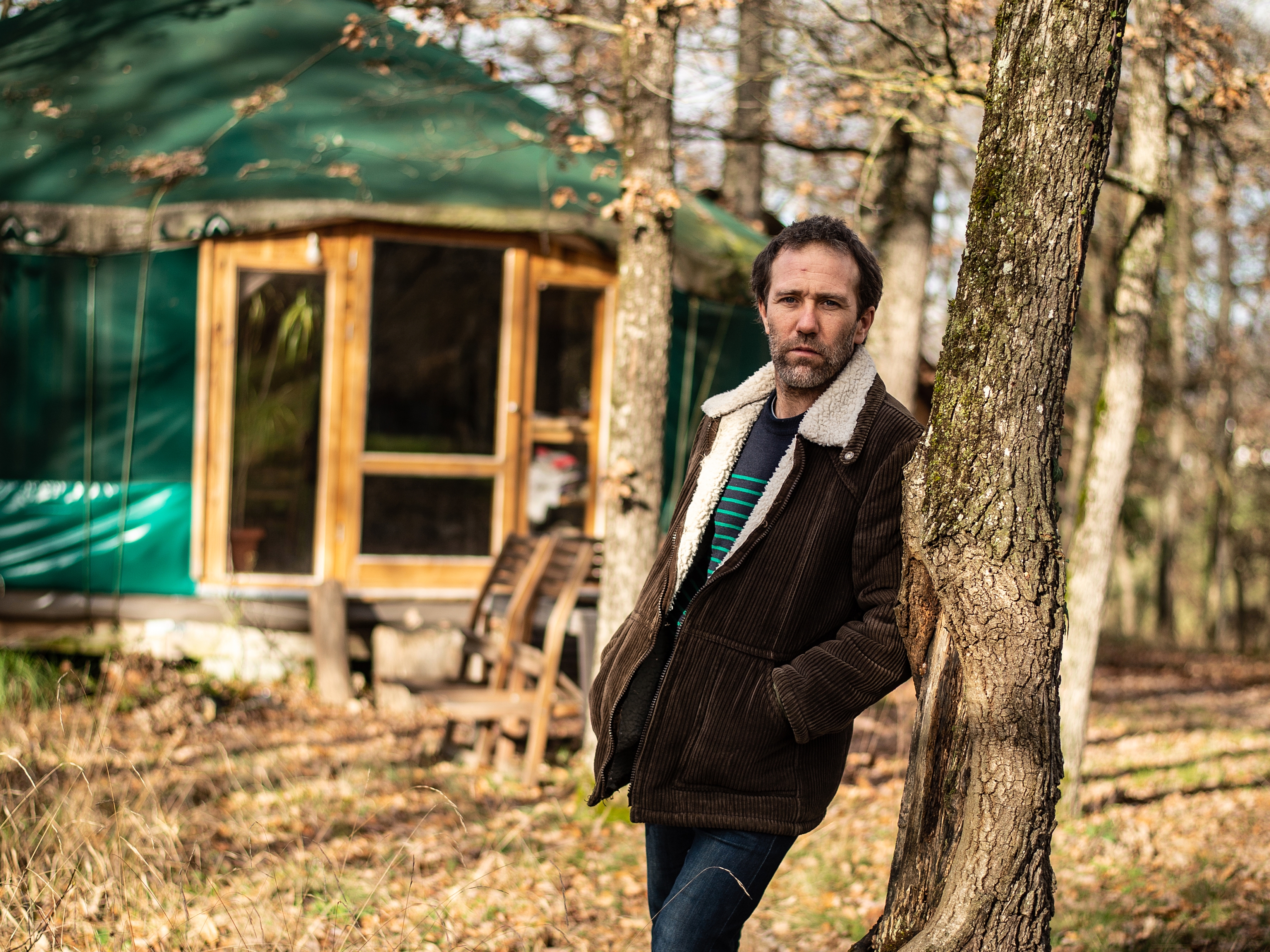"Every space earned by self-management is a space lost by institutions"
- Carlos Taibo (1956, Madrid) is one of the most significant faces of contemporary anarchism. He has reflected and written on the growth, altermundism, libertarianism and conflicts in Eastern Europe. We have stood in Madrid to work on the first three. With prudence and careful words, he perceives that we are facing an undeniable increase in libertarian practices. Convinced that the historical moment has made the road possible.

At this time when teaching, healthcare and the public bank are claimed, you differentiate between the “self-managed” and the “public”.
Debates of the European Parliament And I don't have a magic solution, because I recognize that the two thoughts that have spread in the libertarian world are legitimate and both have weaknesses. The first one says: the public, as a concept, must be discarded; to build a parallel society from the bottom, from the bathroom, for example, by building libertarian schools. And there is another aspect that says: that is fine, but we cannot leave all the public structures in the hands of the capital, we have to self-manage the public structures that today are of the state so that they do not remain of the state. I am inclined for the second, in this case, for pragmatic reasons. If in this staggered society the school and public health to those in the lower part are abolished, the future will literally become sad and black. I therefore find it more reasonable to fight for the self-management of the public, which is accepted, but there are segments that cannot manage themselves. So here the problem is born again.
You are deeply critical of social democracy.
I do not think it makes much sense to talk about this, because it is they who criticise themselves. What alternative project does social democracy support? At best, the management of capitalism – as if capitalism could be managed civiliously – and the adoption of the rules of the system from the most unfair perspective. I believe that the support that Western European Social Democracy has given to the TTIP is a classic example of all this.
When a political project abandons self-management and puts forward state actions, it suggests a future with a very short period of time and does not have capitalism because it is not, what we have there is necessarily social democracy. And it seems that socialdemocracy submerges everything. IU and Podemos are social democratic projects.
I recognise that it is not appropriate to be too sectarian. A distinction should be made between consistent socialdemocracy and sold socialdemocracy. The former are so scarce, but I think theirs is a more utopian project than ours.
But you unravel the pejorative sense of the expression “utopia”. Marx and Engels retained this despicable burden: Fourier and Owen socialism are utopian and their historical materialism is scientific.
I have nothing against utopia. Utopia is a basic, inevitable element. It's a mobilizing element that tells us that we can build a different society. It is true that as a concept of utopia it is very broad and can have more critical aspects. If utopia is interpreted as a very distant dream, it is true that it can also have it in its demobilizing dimension. However, I have nothing against the word utopia.
Is it possible to have non-Social Democrat programmes within the framework of the liberal state?
Yes, from the traditional communist left that believes in the state. What happens is that I think it's a closed road. In the case of the Soviet experiment, in its various appearances, it must be concluded that there was no alternative project. Bureaucratic state capitalism. It does not break with the historical and social universe of capitalism, when rhetoric advises deducing just the opposite. In this sense, I can assume that conceptually there is a project other than social democracy, but the facts are crushed. State and capital machinery gears.
With regard to the State, you say: “It doesn’t make sense if your control and guidance is to end capital.”
Let me say another way: the one who believes that he needs to control the state in order to transform society in a positive sense is wrong. The state and the capitalist machinery behind it absorbs what it thinks like this. In fact, the debate between us is more stable. Most of the political actions that can be contemplated do not intend to transform society. In this case, the debate on the State takes a second place. There is a precedent: what those who say they are going to use the state propose. They do not propose anything new that is different from what we have. Changes in the management of what we have.
“Every movement that wants to respond to capitalism has to have three pillars: degrowth, self-management and anti-patriarchalism. As long as one of these three supports is missing, the elements of the system to be removed will be reproduced.” Does it identify internal alternating movements within the framework of the liberal State?
Here, at least, the second point is clear. Each space gained by the logic of self-management is a space lost by the logic of the State and vice versa. I am surprised that this is not understood, because there are people who want to participate in the elections with the intention of giving continuity to those self-managed spaces. It is a respectable reasoning, but I do not understand it. Participation in institutions is social self-management. There is therefore a contradiction here. If we defend self-management, that is to say that decisions are taken from the bottom, we are going backwards in the logic of the institutions.
Technically, however, the State can make self-management possible.
I don't know any examples. The classic model is the Soviet revolution. The Soviet revolution started with a fundamental theme: the revolution self-managed from the bottom, from the Soviets. When the logic of the State breaks, the soviets are destroyed as independent logics. All kinds of self-managed projects disappear. Or what's worse: subsuming rhetorically.
You also warn that anarchists are too obsessed with the state.
It's true. There are many anarchists who, legitimately, question what the State means, forget that behind the State is the logic of capital. In this sense, they do not pay enough attention to the logic of capital. And I think the second is more important, because it picks up the main rules of the game. Not only that. I often remember that there are many forms of alienation and exploitation that do not pass through the state. In this way, if we are obsessed with the State, we are losing our course towards the elements that characterize our society. I understand that this drift is justifiable in libertarian thinking. As others idealize the state as an institution, I am so obsessed with that institution that I make a criticism that is respectable, acceptable and compatible. This can lead to the forgetfulness of other elements.
It considers that degrowth is undeniable as a process to be carried out, not least because the natural raw materials of the earth are limited. You distinguish two growth models, explaining it in detail: from top to bottom.
Yes, what I'm saying is that, to a large extent, it's an undeniable process, because the collapse of growth is getting closer and closer. It's up to us to get used to another scenario of life, with far fewer resources. The downward outlook is based on the extermination of part of the world's population: the populations are left over, so they must be destroyed or destroyed at worst. The bottom-up perspective says: we can live with less and we are able to adapt to another scenario: relational goods are valued more than material goods. I believe that this distinction is legitimate, but – and this can lead to confusion – those who advocate vertical growth do not use the sense of “growth”. The critical perspective uses the concepts of “ecobarism” and “militarized social Darwinism”.
Can you explain eofaxism more deeply as a concept?
These projects are based on the size of the population that is considered to be surplus. This means that an ecological awareness does not necessarily have to be a source of solidarity projects. An ecological awareness can result from projects based on alienation and massacre. That would be the logic of eco-axism.
It can be understood that the decline is based on the primacy of rural areas, to the detriment of urban areas.
That's one of the dimensions. I would not dare to say the opposite, however, we would pave the way if we reduced the project of degrowth to the planting of the citizen. The project of growth contemplates the search for the supremacy of social life (both in rural and urban life), creative leisure, the revolution of the size of many infrastructures, the recovery of local life, moderation, etc. The point is that, following the drift of our society, we have been building megalopolis and you cannot imagine a project of growth if it is not from the perspective of de-urbanisation and re-planting. However, I do not believe that this should be thought out in a radical way, to the point where we think that cities should disappear.
There are many processes of urban dignification through urban orchards, etc. Paris was self-supplying with food a century ago, it's an interesting element to bring in. This has been destroyed by the mercantilist logic of capitalism. We must talk about a transitional stage, and that stage means that this transition will have to be carried out with many elements that are part of the current logic. We can't think that the day after tomorrow we're going to end cities and build rural life.
“By asking the political left what revolution is, he will respond insistently to ‘putting the human being at the centre’. He doesn't realize that the world is sick of man. (…) The time has come to betray the species. There is no humanity, but the terrestrial and the enemy. (…) The revolution consists of making a declaration of war on man. Putting land in the center.” (Invisible Committee, A nous Amis, October 2014).
It is a discourse that has presence in radical movements. Taking the argument to the extreme, they indicate that the main contribution we can make to Mother Earth and the logic of the planet is suicide as a species. That would be the only way to rebuild the balances that we have broken. It is a very serious philosophical argument, but we do not have to take it very seriously, because I do not know if the one who pronounced that phrase has taken the first step.
But those arguments seem interesting to me, because they illustrate the need to reconstruct our relationship with nature differently and assuming that we are the main subject. This is manifested in the debates on the demographic limits of the planet. It is said that the earth, as I know, only has a capacity for five billion or ten billion men, fairly. What about the other species? Don't you care? These are very important interrogations, which place anti-specialist speeches at the centre, which are not marginal. If we are not able to raise it, we will hardly solve the things that we think are important.
Macron made his press conference on 12 June to read the elections to Parliament. Above all, it has had the time to repeat that the right end and the left end are both landers exactly the same. Although he has criticised one and the other, he has opened up ideas of charm of the... [+]
I will spare you too many explanations and details, the esteemed reader who looked at this text. The issue is very simple. I'll talk about you, about me, about all of us. I am going to refer to the amazing travellers of this boat that is still floating without direction and ever... [+]
The crisis on the left jumps to Latin America. Until recently, progressive governments could be found on almost the entire map of the region. But things are changing in recent months. The three presidential elections marked a turning point: Daniel Noboa won in Ecuador, Javier... [+]
“And what is the weather she perceives for Thursday?” I asked the feminist militant that she was organizing the A30 strike. “The truth is that lately I’ve had my head in a conflict at school,” he replied with a serious face.
The Vox Solidarity party union called for a... [+]
When analyzing the history of social movements and protest, the most abundant studies are those of the Contemporary Age. Sources are more abundant, conflicts are more abundant, and researchers also share the view of the world of research. That is, as we pass through the sieve of... [+]
French and Spanish leftist parties and movements have a different relationship with the concept of nation and with nationalism. This completely conditions the relationship with the Basque nationalists. But why? The key to the theme lies in the different processes of creation of... [+]
Euskal Herrian "paradigma iraultzaile berria" zabaldu eta garatu nahi duen Kimua ekimen herritarra zenbait herritan aurkezpen bira osatzen ari da. Hala Bedi irratian Kimuako kide batekin hitz egin dute proiektuaren inguruan gehiago jakiteko.























